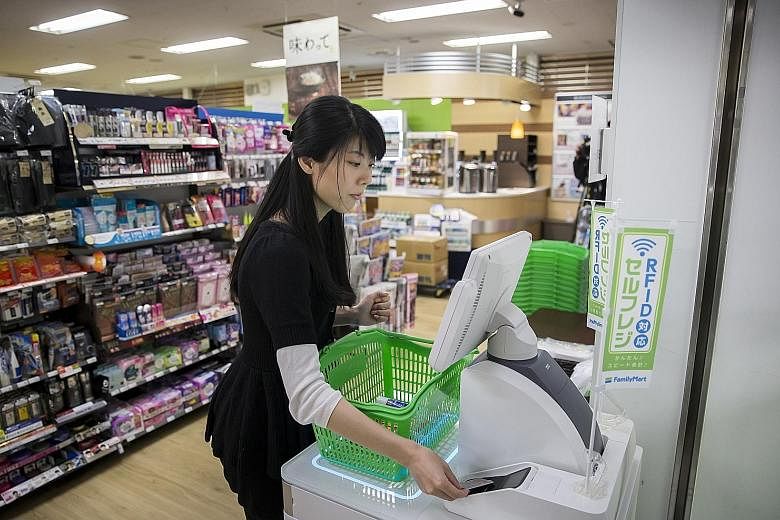TOKYO • Apart from culture, food and a super-efficient rail system, one of the things that most impresses travellers to Japan is its convenience stores, bursting with sushi, alcohol, underwear and ready-made food available at all hours.
Well, maybe not for long.
The 24-hour "conbini" experience is starting to show cracks as a labour shortage in the world's third-biggest economy forces operators to consider cutting store hours.
Yesterday, FamilyMart UNY Holdings Co joined Lawson and Seven & i Holdings Co in saying they are contemplating changes and testing reduced hours in order to cope.
With unemployment at 2.3 per cent, near 1992 lows, Japan's labour shortage is being felt acutely across all industries, from construction demands ahead of the 2020 Tokyo Olympics to caring for a rapidly ageing population.
Convenience store operators are feeling the pain. In a survey by the Ministry of Economy, Trade and Industry last year, 61 per cent of convenience store franchisers said they did not have enough workers, almost triple the ratio from 2014.
"A lot of franchise store owners are having to work themselves, sometimes 16 to 18 hours a day just to keep operations going," said Bloomberg Intelligence analyst Thomas Jastrzab. "It's really exhausting for them."
Many store owners are required to keep their doors open all hours of the day because it is written into franchise contracts that can last up to 15 years. In the past, franchisers such as 7-Eleven owner Seven & i Holdings rigidly enforced store hours, even as Japan's labour crunch worsened. The operators argued that they needed to generate profits by selling to nocturnal consumers in cities and stay open for residents in rural areas.
Now that seems to be changing. FamilyMart, which has more than 16,000 stores throughout Japan, said yesterday it will experiment with reduced-hour operations. It is offering 270 stores the option to join the project, which begins in June and will last up to six months.
7-Eleven, the largest convenience store operator in Japan, tested a non-24 hour programme in 10 directly managed stores last month, and will let franchisees test the operating model starting this month.
"We need to be flexible in thinking about dealing with the customer and the location's needs as well as the franchiser's," Seven & i Holdings president Ryuichi Isaka said last week.
Restaurant chains Royal Host and McDonald's have also cut back on 24-hour operations in recent years. Retailers are not the only ones feeling the crunch. Last year, 153 companies in Japan went bankrupt due to labour shortages, up 44 per cent from the previous year, according to Teikoku Databank.
"We recognise, as a government ministry, that this is a serious problem," Minister of Economy, Trade and Industry Hiroshige Seko said at a meeting with executives from eight convenience store operators last Friday. He noted the tighter labour market and burden on store owners, adding that convenience stores were "necessary infrastructure" for the population of 126 million.
BLOOMBERG

